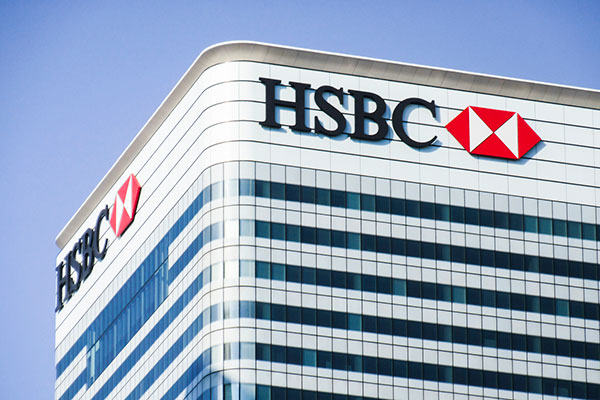Pandemic batters HSBC, but bank stays stable
Asia growth and strong reserves aid the firm as it eyes streamlining.
23rd February 2021 09:24
by Richard Hunter from interactive investor
Asia growth and strong reserves aid the firm as it eyes streamlining.

HSBC (LSE:HSBA)’s annual results have underlined its position as a financial juggernaut even during the most testing of times.
The effects of the pandemic may have been painful, but there was never a threat to the bank’s financial stability despite the duress.
The environment unquestionably took its toll on any number of metrics, with the combination of historically low interest rates, reduced business activity arising from the pandemic and an increase in customer deposits all contributing to crimping growth.
As such, revenues fell 10%, the net interest margin worsened to 1.3%, net interest income was down 9.5% and profits across the board were lower than the previous year.
Unsurprisingly, the cost/income ratio suffered as a result, rising from 59.2% to 62.5%, while the return on equity figure slumped to just over 3%, against a target of between 10% to 12% which the bank has now revised to around 10%. As a region, Europe reported a pre-tax loss of $4.2 billion (£3.63 billion), although this was an improvement from the previously negative figure of $4.7 billion.
- Investors want bank dividends restored this year
- ii view: investors like NatWest's strong capital cushion
- ii view: what to make of Barclays' latest results
Pre-tax profits overall came in at $8.8 billion, against $13.4 billion the year before, although the 34% drop is better than the expected outcome of $8.3 billion. Operating expenses fell 19%, with a commitment from the bank to continue the reduction of the general cost base.
Within the units, the Global Banking & Markets division made a contribution to mitigating the overall numbers with a pre-tax profit of $4.8 billion.
By geography, Asia still accounts for the lion’s share of the group’s business, reporting a pre-tax profit of $12.8 billion, in sharp contrast to the European result.
The financial stability of the bank still shines through, with a capital cushion of 15.9% comparing to a previous 14.7%, and with a liquidity coverage ratio of 139% underpinning HSBC’s strength.
At the same time, the bank has resumed the payment of a dividend, although an implied yield of just over 2% is a far cry from the level previously being paid, and may represent a reset from here on in.
HSBC now plans to streamline the business, while moving the dial on those areas where it has particular growth aspirations. As such, the Asian region and China in particular is likely to receive renewed focus. Each of the units – Wealth & Personal Banking, Commercial Banking and Global Banking & Markets - will be energised to differing degrees to capitalise on their individual pockets of strength.
However, this will not happen overnight and comes at a time when the backdrop remains difficult, although improving. The announcement of a vaccine in early November was positive for the banks based on expected economic recovery, and the shares have rallied 28% since.
Even so, the performance of the last year remains a negative one, with a decline of 23% comparing to a drop of 11% for the wider FTSE 100. The market consensus of the shares will also take time to soften, with the current general view of the shares as a ‘sell’ likely to remain in place for the moment.
These articles are provided for information purposes only. Occasionally, an opinion about whether to buy or sell a specific investment may be provided by third parties. The content is not intended to be a personal recommendation to buy or sell any financial instrument or product, or to adopt any investment strategy as it is not provided based on an assessment of your investing knowledge and experience, your financial situation or your investment objectives. The value of your investments, and the income derived from them, may go down as well as up. You may not get back all the money that you invest. The investments referred to in this article may not be suitable for all investors, and if in doubt, an investor should seek advice from a qualified investment adviser.
Full performance can be found on the company or index summary page on the interactive investor website. Simply click on the company's or index name highlighted in the article.